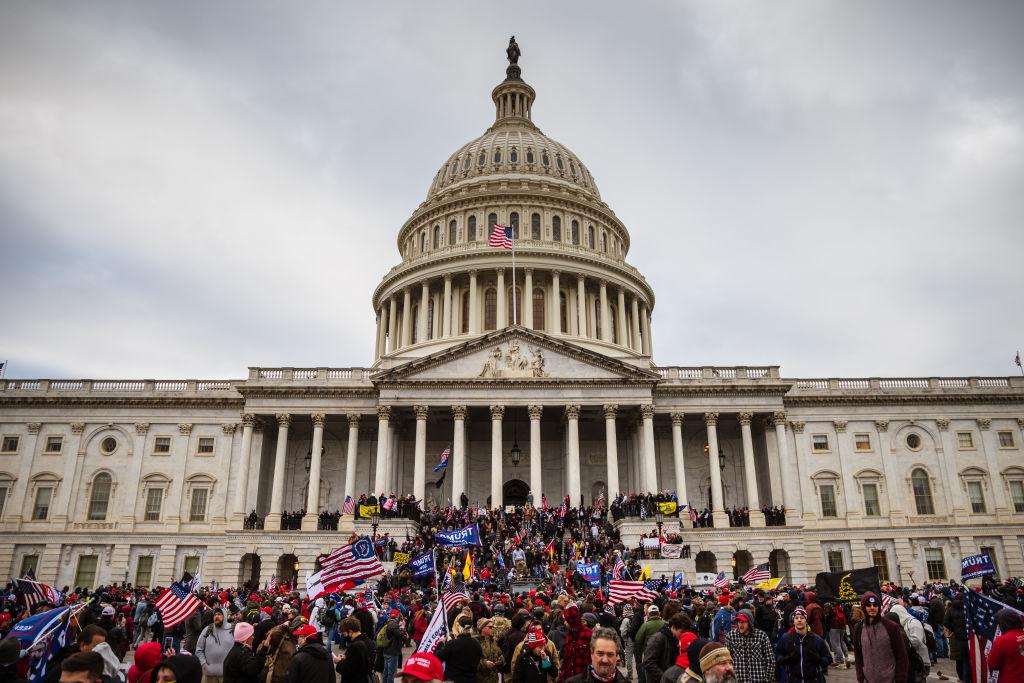A man from Memphis, Tennessee, has been sentenced to four years in prison for misdemeanor and felony offenses related to his actions during the Jan. 6, 2021, Capitol breach incident.
On Jan. 6, 2021, Matthew Bledsoe, 38, attended a rally near the Ellipse and subsequently headed over to the Capitol. After 2:13 p.m., he entered the Capitol grounds. Bledsoe then moved to the Capitol Building, scaled a wall at the Upper Northwest Terrace, and entered through a fire door at the Senate Wing.





